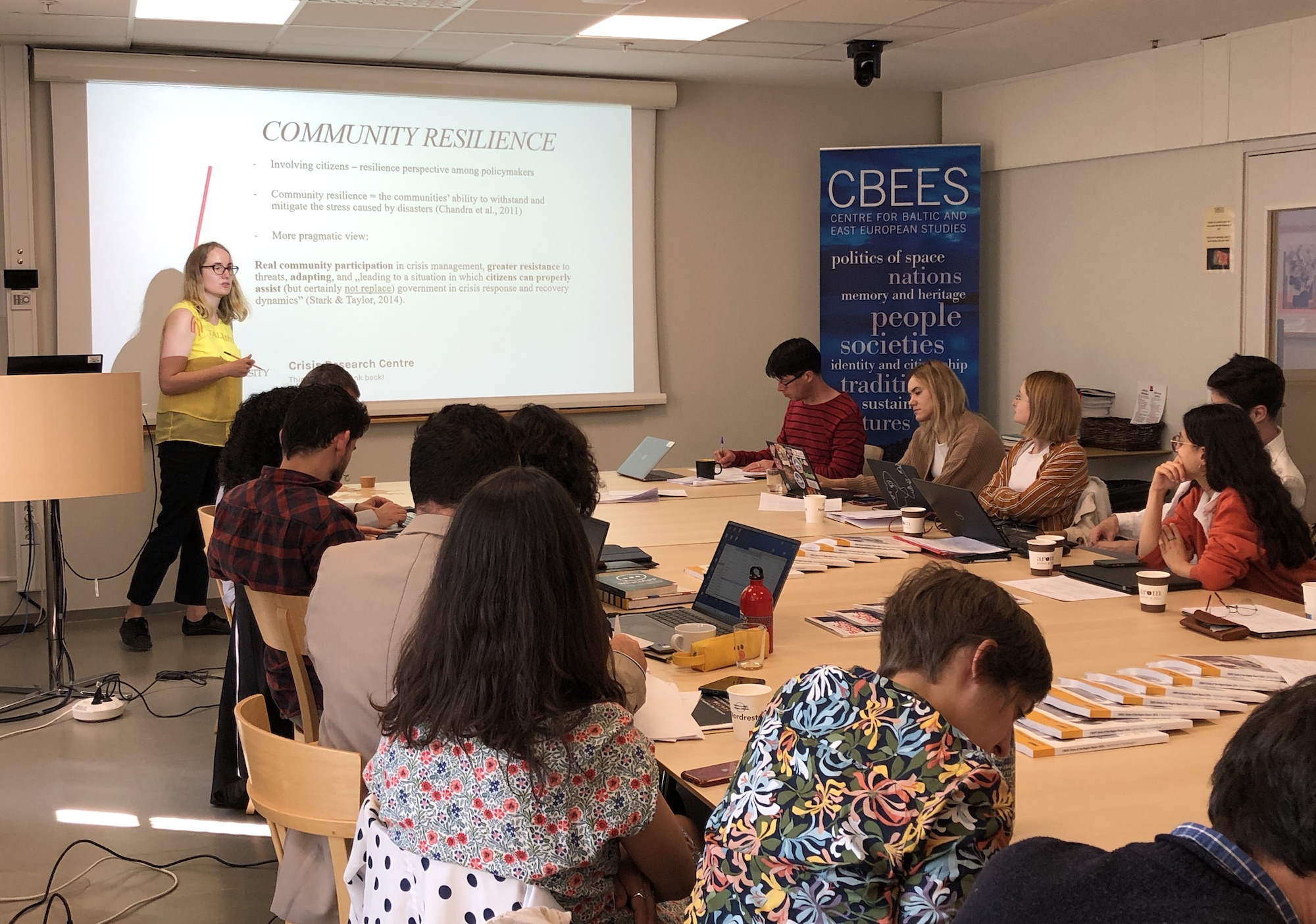
Citizen participation in crisis management? Presentation at a conference in Södertörn University
This year’s annual conference, held for the tenth time at the Centre for Baltic and East European Studies (CBEES) at the University of Södertörn, focused on the relationship between citizens and the state during and after crises. The two-day conference brought together researchers from many corners of Europe to share the latest knowledge on citizen-state relations in times of crisis.
“The presentations covered a wide range of crises, from locals coping with the refugee crisis on Lampedusa Island, to cooperation between different levels during the earthquakes in Turkey, to the management of the COVID-19 in Romania. At the conference, we shared Estonian local experiences of citizen involvement in crisis management, with the example of the response to the May 2022 coastal pollution in Vormsi and Hiiumaa in Western Estonia,” said Anne-May Nagel, researcher at the Crisis Research Centre who gave the presentation. “Hiiumaa and Vormsi stood out for their broad community involvement in the response to this crisis, and our research was looking into factors that enable municipalities to involve citizens in the response to a pollution crisis,” said Nagel.
Involving citizens in crisis management is a topic that is receiving increasing attention in the scientific literature, and is associated with local resilience. However, it is a rather complex area and various obstacles and issues can arise when practically involving the community, such as the fact that the community does not usually include people with specific training for a particular crisis. “It is very important that the municipality is able to inform its residents of the proper course of action in a timely manner, and to set up a support system that allows people to come to assistance. For example, in Hiiumaa and Vormsi, people were quickly informed on how to clean up pollution in the most effective way, an instructional video was made, and information was constantly updated on which areas still needed to be cleaned up,” Nagel said.
🧡 The participation of a representative of the Crisis Research Centre at the conference at the University of Södertörn was supported by the National Foundation of Civil Society. We are grateful for the support.
Jaga postitust:
